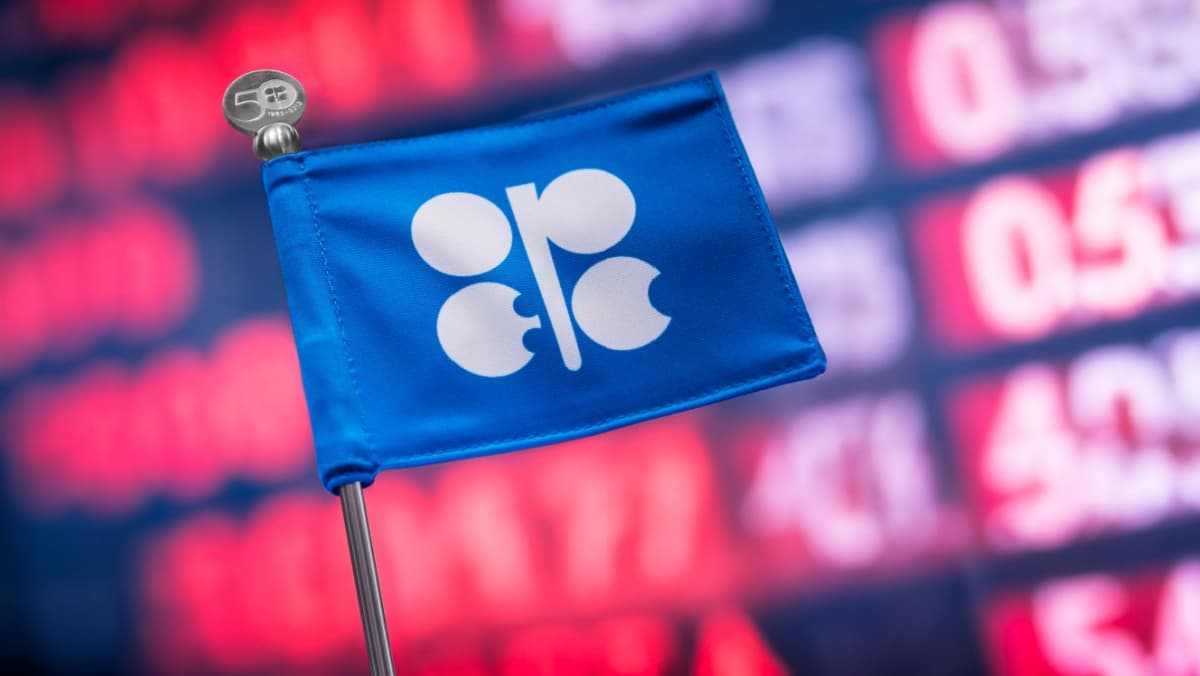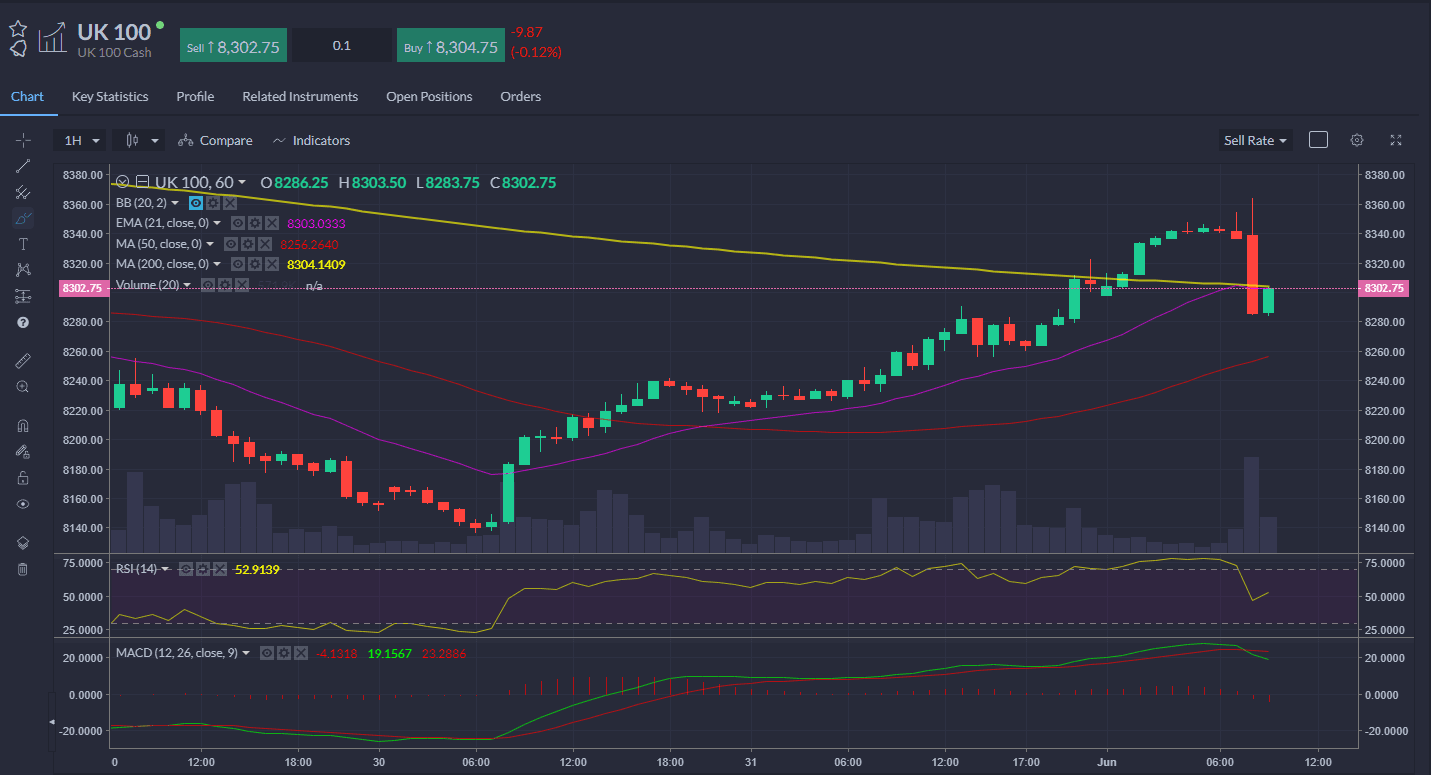Monday Jun 3 2024 13:08

6 min

Elections can make a difference to markets; but it depends on the circumstances. Indian stocks hit a record high after exit polls predicted a decisive win for incumbent prime minister Modi, who is generally seen as pro-business and more importantly pro-infrastructure.
Meanwhile, the South African rand and stocks have both come under a fair bit of pressure on the uncertain election outcome and poor showing for the ruling ANC.
Mexico’s ruling left-wing party seems to have comfortably won the presidential election, but the peso seems to be selling off a bit on the news to reach a 1-month low against the US dollar. Whether Donald Trump returns to power in the US may matter more in the long term for Mexico’s economy.
Сalculate your hypothetical P/L (aggregated cost and charges) if you had opened a trade today.
Market

Instrument


Account Type
Direction
Quantity
Amount must be equal or higher than
Amount should be less than
Amount should be a multiple of the minimum lots increment
USD
EUR
GBP
CAD
AUD
CHF
ZAR
MXN
JPY
Value
Commission
Spread
Leverage
Conversion Fee
Required Margin
Overnight Swaps
Past performance is not a reliable indicator of future results.
All positions on instruments denominated in a currency that is different from your account currency, will be subject to a conversion fee at the position exit as well.
Do elections really matter for the UK market? I think there is a risk of overegging the importance of whether the ruling party is red or blue. Labour could borrow more – but as the Truss episode showed, markets and credit and debt are all about faith and trust and less about the specifics. Debts are sustainable until they are not.
The City may instinctively prefer a Tory win on the whole, but investors could benefit from unlocking growth. Who knows? And Labour has done a good job on the Prawn Cocktail offensive. Does the US presidential election matter to markets? Absolutely. And Trump’s guilty verdict in his hush money case has raised the stakes further.
Meanwhile this week we have European parliamentary elections, which could show a big swing to the right — something I discussed with BlondeMoney’s Helen Thomas on Overleveraged. The European Central Bank is set to cut this week but we could see some geopolitical premium in govt bond spreads on the results come the weekend. Fragmentation risks are the thing we are going to listen out for – but as yet we are not seeing much in the way of splintering of the core. The French result will be crucial to see how much Macron has lost the people.
Economic data remains king, for now. US inflation slowed, albeit still not quite as much as the Federal Reserve may like. US core PCE dipped to +0.2% in April, the smallest monthly increase of the year.
That helped to send the US 10-year yield back below 4.5% and somewhat beefed up market expectations for a Fed cut in September. It sent stocks higher – the Dow rallied over 574 points for its day of the year and the S&P 500 rose 0.8% to pare back the weekly losses, though stocks rose through the month of May as a whole.
Nvidia has unveiled a next-gen chip for 2026 dubbed “Rubin,” giving a boost to tech indices overnight and sending NVDA higher pre-market. European stock markets followed gains on Wall Street and in Asia to open higher. The European Central Bank is expected to cut rates this week and a soft GDP number has raised expectations for the Bank of Canada to do the same.

OPEC+ extended deep oil production cuts by a year – points to slowing demand growth so prices tested multi-month lows at the Sunday night open. The cartel chose to extend about half its production cuts (3.66mn bpd) to the end of 2025 and will phase out a further 2.2mn bpd of cuts between October 2024 and September 2025. Hardly a surprise when Saudi Arabia is at this moment trying to get off a new stake in Aramco.
Short take: the deal will remove fears that OPEC+ is about to walk from the majority of its production curbs, but it shows that demand is not there. US disinflation continues but is slackening. Consumption is slowing – down 2% in Q1. On the other hand, Asian factory output has improved with Japan’s May factory activity expanding for the first time in year whilst South Korea and China activity rose at the fastest pace in two years.
The FTSE 100 was a little firmer in early trade on Monday to test the 8,300 area — the threat of a UK general election not really having any impact yet.
The blue-chip index ran lower from May 15th through to Thursday morning (May 30th) but snapped the two-week pullback to rally hard into the weekend. Nevertheless, a solid continuation in the overnight futures has somewhat retreated at the cash open.

When considering shares, indices, forex (foreign exchange) and commodities for trading and price predictions, remember that trading CFDs involves a significant degree of risk and could result in capital loss.
Past performance is not indicative of any future results. This information is provided for informative purposes only and should not be construed to be investment advice.
Asset List
View Full ListLatest
View all
Monday, 31 March 2025

5 min

Monday, 31 March 2025

5 min

Saturday, 29 March 2025

2 min


